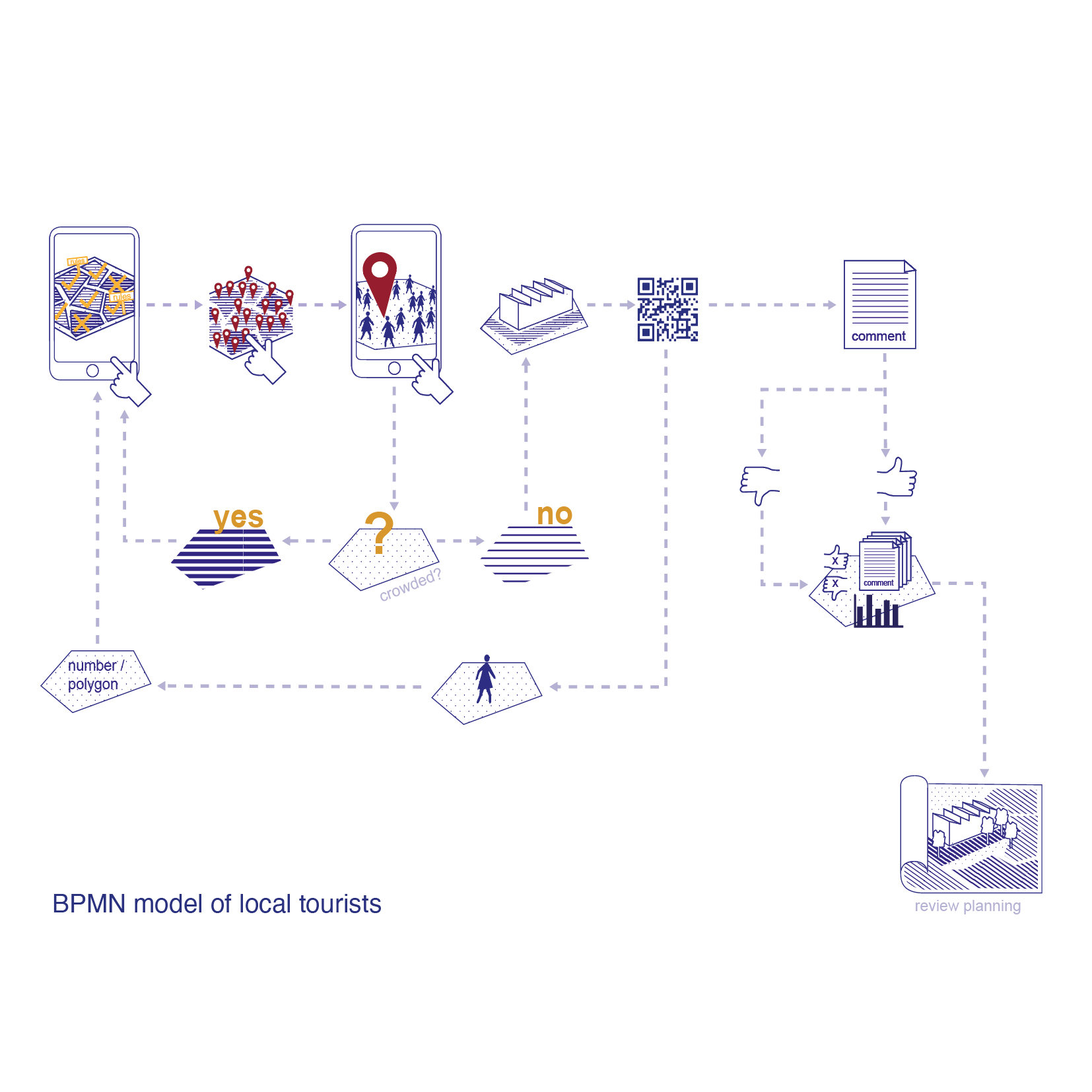Rethink. Restart. Recover. Resilient. Pandemics and Cities: A data-driven communication platform for spatially just planning in the Amsterdam Metropolitan Area
A project by Amal Al Balushi, Eva Hoppmanns, Vanessa Kucharski and Lea Schwab
Integrated Project III
Lecturers: Univ.-Prof. Dipl.-Ing. Christa Reicher, Univ.-Prof. Dr. Jakob Beetz and Dr. ir. Ceren Sezer
winter semester 2020/21
“YOU NEVER WANT A SERIOUS CRISIS TO GO TO WASTE” – EMANUEL RAHM (WALL STREET JOURNAL, 2008)
This project presents an interactive, data-driven, online platform as a response to spatial injustices illuminated by the COVID-19 pandemic – with a focus on the Amsterdam Metropolitan Area. The report analyses the region (pre-pandemic and currently) before proposing the platform as a tool to aid future developments. The lockdowns were used as indicators of spatial injustices – in terms of the unequal accessibility to open spaces and essential needs. As lockdown regulations were top-down enactments influenced by virus rates, AMA created blanket policies for entire districts regardless of locational conditions.
Examples of participation or local involvement in decision-making were not included during the pandemic, and clear communication possibilities between communities and authorities are lacking as the crisis continues. Our platform, named Access, can help residents understand the policies that affect their actions, offers them alternative activities and spaces, and provides means to discuss the adequacy of their public sphere. The data could reveal locational key-issues residents‘ experience and influence the municipality‘s actions. Spatial changes are ultimately reinstated to the platform, providing a transparent view of how AMA residents and authorities interact, use, and change their space during a crisis.
We discuss recovery phase initiation sequences in the case of the COVID-19 Pandemic, and advertise a new approach not yet attempted by municipalities, based on data and participation. Therefore, it can aid planners, city changemakers and authorities in policing of the pandemic and finding alternative processes. The focus is on the AMA region; however, it can benefit other regions in the world – specifically former touristic hubs – when applied with the right indicators.
We propose learning and acting on the situation that is upon us now through testing tools that may help us evaluate the current spaces that are failing, and discussing changes needed amidst a crisis. We emphasise the need for participation and inclusivity to still be an influencing factor in the spatial change in balance with the strong leadership of dire times; as it is the day-to-day persons that are going to have to pick up the pieces, help rebuild and open cities. The report works on the hypothesis that our spatial scenario can be heavily influenced by actions taken during the pandemic and leading up to the future “back to normal” situation. Certain actions and preparations to “start-up” normal life again need to begin now for a quick recovery. We focus on the question of how to overcome a pandemic in a spatially just way and recover as soon as possible.





